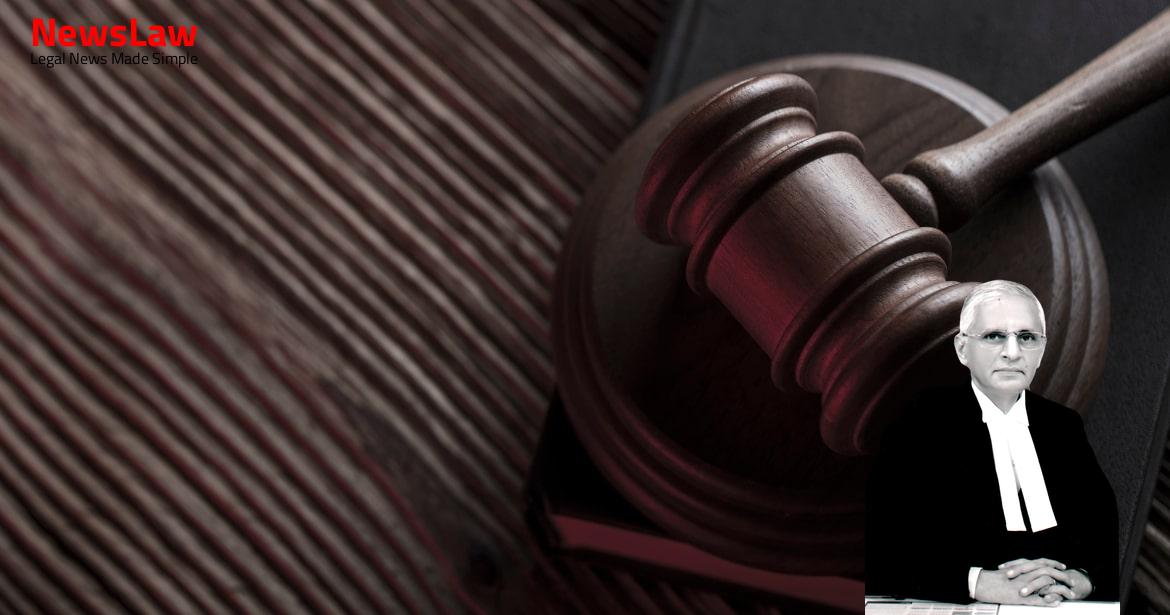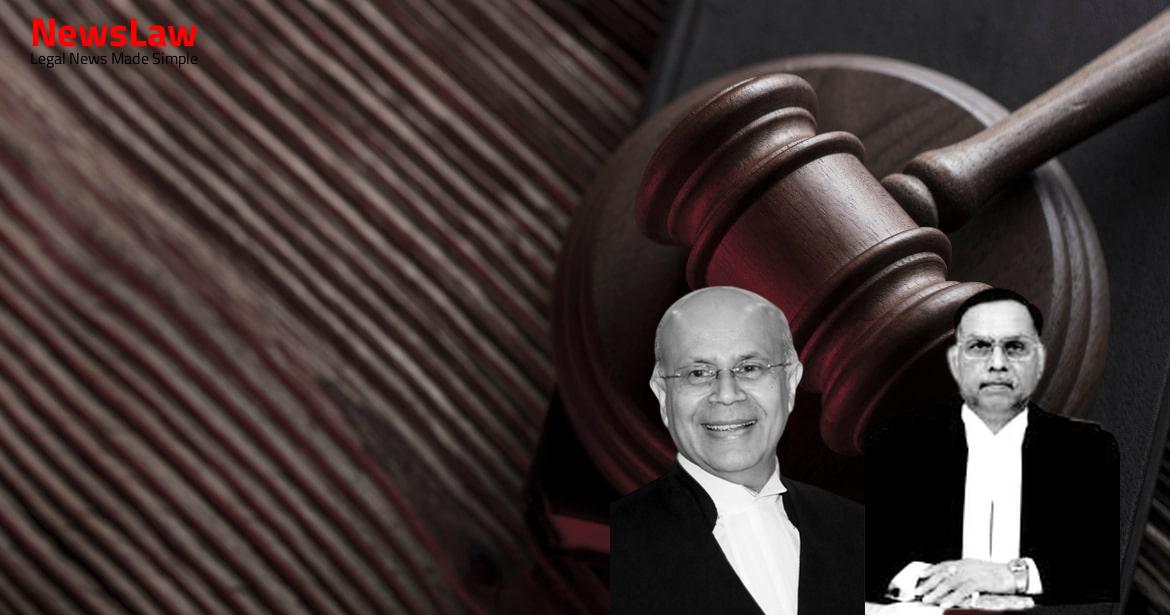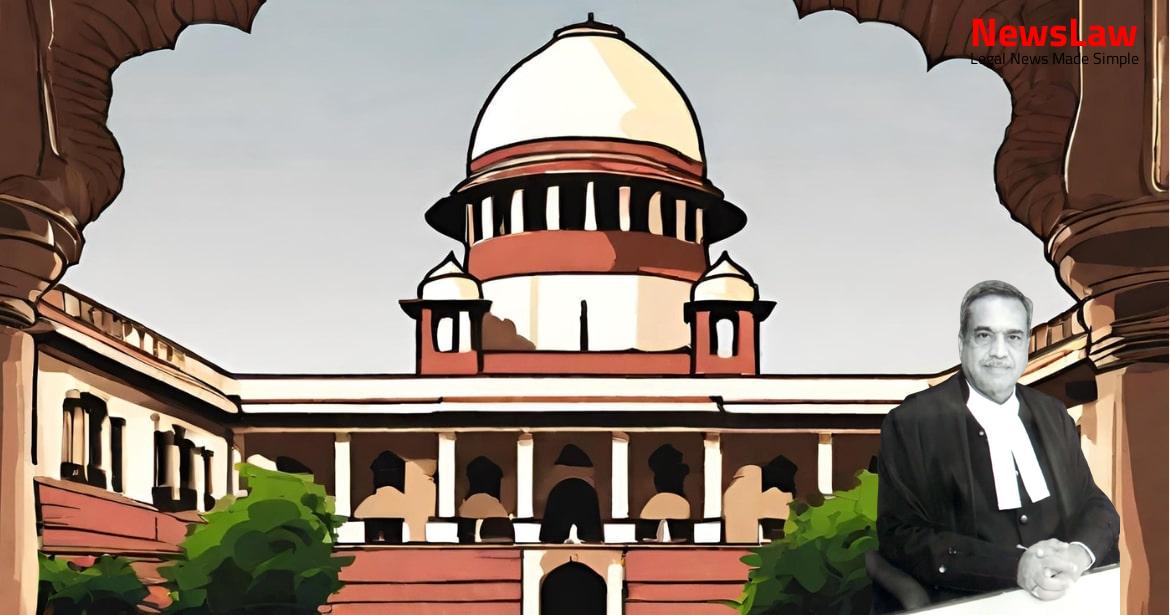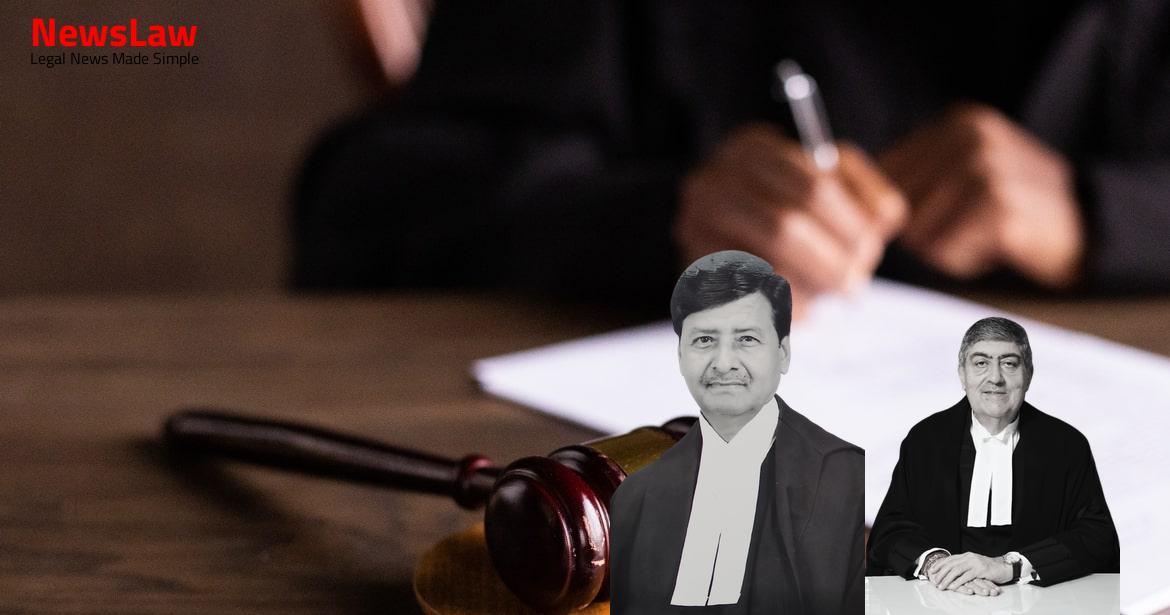A significant decision has been made by the Supreme Court of India regarding the bail granting in the INX Media money laundering case. The Court addressed the concerns raised in the case involving the alleged influence on officials and financial irregularities. This blog post explores the nuances of the case and the considerations that led to the bail being granted. #SupremeCourt #LegalCase #INXMedia #BailGrant
Facts
- The appellant, Mr. Karti Chidambaram, is alleged to have influenced officials in the FIPB unit to favor INX Media Pvt. Ltd. by receiving a sum of Rs. 3 crores through companies controlled by his son.
- The FIPB unit did not approve the downstream investment by INX Media (P) Ltd. into INX News (P) Ltd.
- Allegations in the ECIR case were the same as those in the FIR, involving criminal conspiracy between INX Media and Mr. Karti Chidambaram.
- INX Media was found to have violated approval conditions by making a downstream investment exceeding the approved foreign inflow by Rs. 305 crores.
- Several overseas bank accounts were opened by the appellant and co-conspirators.
- The appellant, despite being aware of violations, approved the downstream proposal by INX Group.
- Investigations revealed acquisitions of overseas assets in the name of shell companies on Karti Chidambaram’s instructions.
- The High Court declined to grant regular bail to the appellant in Bail Application No. 2718 of 2019.
- The genesis of the case lies in an FIR registered by the CBI against INX Media Private Limited for seeking FIPB approval and making downstream financial investments.
- The appellant approached the High Court seeking anticipatory bail, but it was dismissed as it could hamper the investigation by withholding information.
- Later, the appellant applied for regular bail on the grounds of being a law-abiding citizen with deep roots in society and no risk of flight.
- The High Court dismissed the bail application citing non-cooperation and necessary custodial interrogation.
- The appellant then moved to surrender before the Trial Court after his application for anticipatory bail was rejected.
- The appellant was subsequently arrested in the CBI case and has been in custody since then.
- During investigation, it was found that shell companies were used to layer proceeds of crime, connected to the appellant.
- The High Court noted the seriousness of the allegations and the active role played by the appellant.
- The appellant was granted regular bail in the predicate offence by the Court.
- The Court considered the appellant’s illness but stated that directions had been given to the Jail Superintendent, so it was not a basis for bail.
- The High Court’s denial of bail based on the seriousness of the allegations was criticized as incorrect.
Also Read: Solapur Municipal Corporation vs. Majarewadi Gram Panchayat Employees
Arguments
- The senior counsel for the appellant argues that the gravity of an offence should be determined by the severity of the prescribed punishment.
- In the case at hand, the alleged offence of money laundering is punishable by imprisonment not exceeding 7 years, thus not classified as ‘grave’ or ‘serious’.
- The appellant’s counsels contend that bail should have been granted by the High Court considering the triple test of flight risk, tampering with evidence, and influencing of witnesses all favoring the appellant.
- The appellant argues that the High Court erred in considering findings from a completely unrelated case and going into the merits of the case to deny bail.
- The Senior Counsel for the appellant states that at the bail stage, an elaborate examination of evidence and detailed reasons affecting the accused should be avoided.
- It is contended that economic offences are grave in nature, arising from deep-rooted conspiracies with effects on the whole community, which should be taken into account during bail considerations.
- The appellant further argues that there is no direct material linking him to the alleged money laundering offence, and no material implicating him has been presented to the High Court.
- The appellant’s health condition, being 74 years old with fragile health, is also emphasized as a reason for granting bail.
- The gravity of the offence is asserted by the Solicitor General, stating that considering the offence’s seriousness is crucial in bail decisions, especially for economic offences.
- The Solicitor General also argues that the High Court did not properly consider the influence the appellant could have on witnesses, emphasizing the importance of the offence’s impact on society and the need for thorough investigation before granting bail.
- Decision in the Sanjay Chandra vs CBI case noted by the Constitution Bench.
- Primary ground for refusal of bail was the seriousness of the alleged offence and financial loss to the State.
- Secondary ground was the possibility of tampering with witnesses.
- Appellant’s counsel argued lack of evidence linking the appellant to the offence.
- The argument of tampering with evidence or witnesses was countered based on the timing of the arrest in relation to the alleged offence.
- Reference to the Shri Gurbaksh Singh Sibbia vs State of Punjab case regarding the purpose of bail being to secure attendance at trial.
Analysis
- The high court judge was justified in considering the gravity of the offense despite passing the triple test in favor of the appellant.
- Disapproval of the manner in which conclusions were recorded in certain paragraphs, reflecting findings on the alleged offense as if they were court findings.
- Absence of documented involvement of the appellant in the economic offense, emphasizing the need for solid evidence beyond mere allegations.
- No explicit bar in relevant legislation or bail jurisprudence for denying bail solely based on the gravity of the charge.
- The decision on bail must be made on a case-by-case basis, considering individual circumstances and the accused’s presence for trial.
- Concerns regarding possible witness influence were dismissed given prior recorded statements and imminent complaint filing.
- Analyst remarks on financial irregularities and the severity of the sentence, highlighting the need for a balanced approach when determining bail in economic offense cases.
- Inadequate justification for custodial interrogation given the appellant’s age, health concerns, and lack of involvement in influencing witnesses or evidence tampering.
- Avoidance of undue interference based on unverified allegations, with a focus on establishing complicity during the trial with proper defense opportunities.
- Section 498 confers wide powers on the Sessions Judge or High Court to grant bail without restrictions in Section 497.
- High Court discretion in granting bail should not be bound by specific rules due to unfettered legislative discretion.
- Accused persons in custody are at a disadvantage compared to those who enjoy freedom in adequately preparing their defense.
- Presumably innocent persons are entitled to freedom and opportunities to defend themselves and establish their innocence.
- No hard and fast rule exists for the exercise of discretion under Section 498, except that it should be done judiciously.
Also Read: Jagdishchandra v. Joint Charity Commissioner & Ors.
Decision
- The appellant is entitled to be granted bail considering all facts and circumstances, including the duration of custody.
- The appellant must be available for interrogation during further investigation as needed.
- No costs are to be awarded in this matter.
- The appellant is prohibited from tampering with evidence, intimidating or influencing witnesses.
- The appellant is not allowed to give press interviews or make public comments regarding the case.
- The High Court’s judgment from 15.11.2019 is set aside, and the appellant is granted bail upon executing bail bonds of Rs.2 lakhs with two sureties.
- The appellant’s passport remains deposited with the CBI and cannot leave the country without permission from the Special Judge.
- No opinion on merits is expressed in this order, leaving all contentions open for consideration during the trial.
Case Title: P. CHIDAMBARAM Vs. DIRECTORATE OF ENFORCEMENT
Case Number: Crl.A. No.-001831-001831 / 2019



